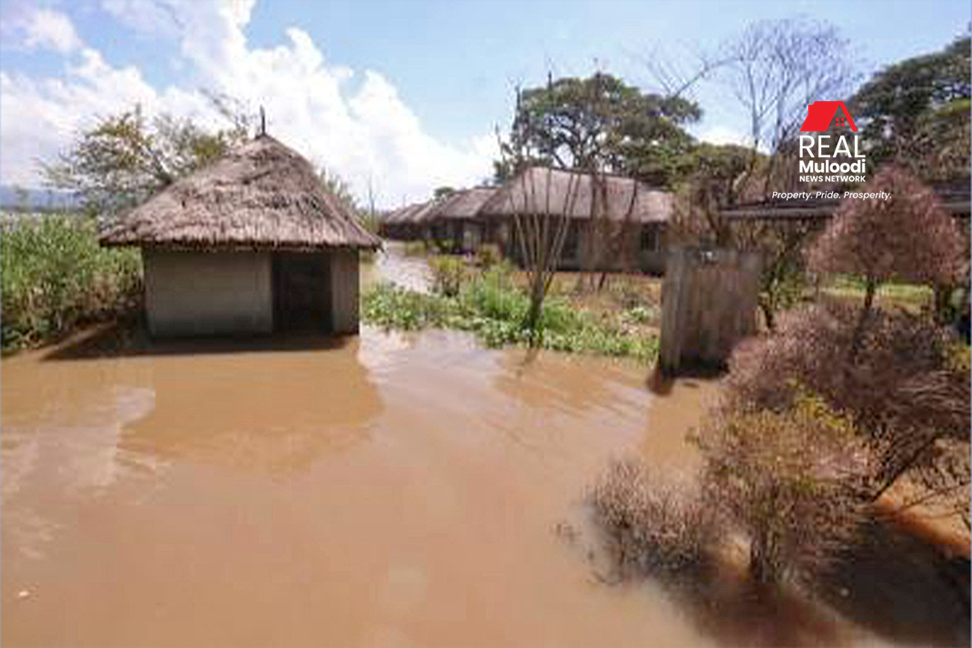UGANDA, Dokolo | Real Muloodi News | Thousands of residents in Dokolo District are experiencing dire house living conditions due to severe flooding triggered by rising water levels in Lake Kwania.
The floods have displaced numerous people, destroyed farmlands and infrastructure, and created humanitarian needs across the region.
Official data from Dokolo District indicates that a total of 15,152 households are affected and living in dire conditions. This includes 5,357 households in Agwata Town Council, 4,350 in Kwera Sub-county, 2,400 in Adeknino Sub-county, 1,220 in Agwata Sub-county, 955 in Okwongodul, and 870 in Adok Sub-county.
Local leaders and residents report that the floods have obstructed access to essential services such as markets, schools, and health centres.
In Bata Island, for example, pupils have to wade through flooded roads to get to school, while others are living in similar circumstances.
Dr Rosemary Alwoc Ogwal, a resident of the Adok Sub-county, shared that the situation has been ongoing for some time but has now reached a crisis point.
“We have lost farmland and the main house to floods; we don’t know how we are going to survive after this,” she stated.
Farmers in the area have been forced to sell livestock such as cows at low prices due to the lack of available grazing land.
“This is a painful blow to someone who has already lost their home and livelihood to the floods,” Dr Alwoc Ogwal noted.
In the Adeknino sub-county, 17 out of the 42 villages have been affected by the disaster, according to Fredrick Ogwal Owiny, the LC3 chairman.
He noted that the floods have impacted access to schools and healthcare facilities in the area.
Many of the displaced people are staying in rented houses or with relatives in trading centres such as Awelo, Tecwao, and Alik in Adeknino Sub-county.
The Chief Administrative Officer (CAO), Richard Madete, requested immediate food relief and other basic needs from the Office of the Prime Minister on April 15, 2024.
The International Rescue Committee (IRC), an international humanitarian organisation, highlights the long-term impact of floods, which include undermining food security, damaging infrastructure, and displacing millions from their homes.
The flooding crisis exacerbates existing challenges, affecting the most vulnerable communities the hardest.
In recent years, communities with low levels of climate resilience have faced significantly higher mortality rates due to floods, droughts, and storms.
The residents of Dokolo District are now grappling with the aftermath of this severe flooding, which has left many in dire house living conditions.
READ MORE LIKE THIS:
Landslides and Floods in Kasese Leave 5 Dead, 26 Houses Destroyed
Residents along Masindi-Kampala Highway Evacuated Amidst Flood Risks



